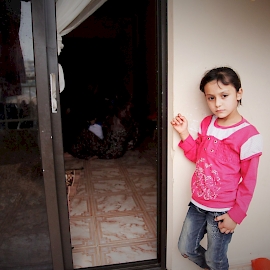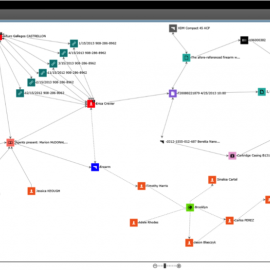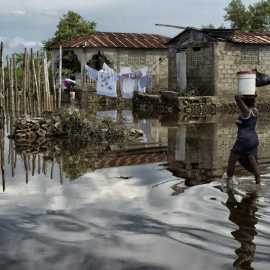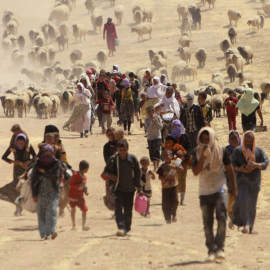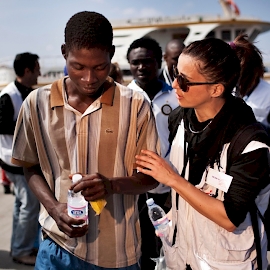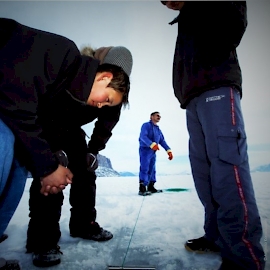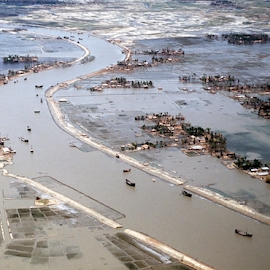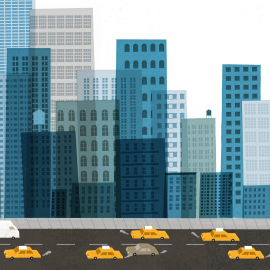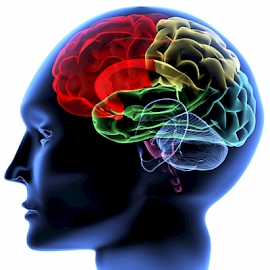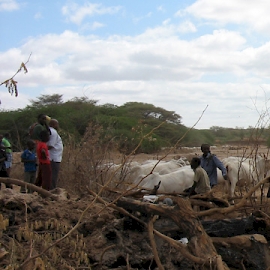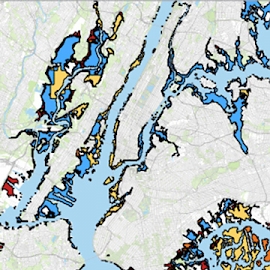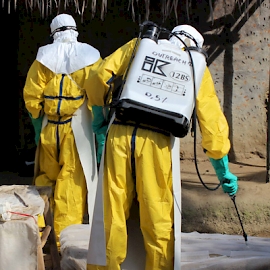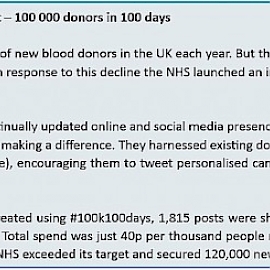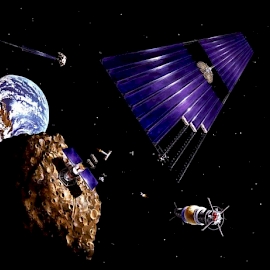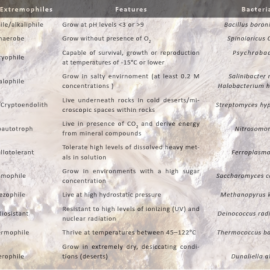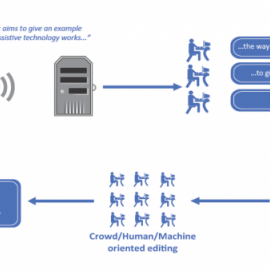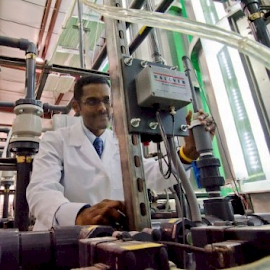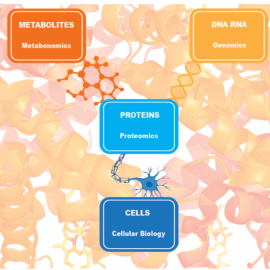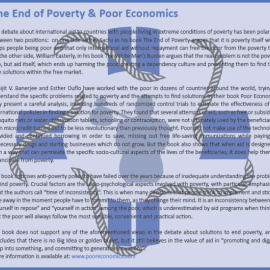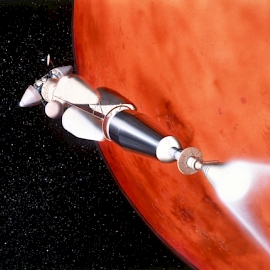Videogames and the Future of Ideological Warfare
Videogames have emerged as one of the preeminent domains of ideological warfare, forming part of the media strategies of both state military forces and violent non-state actors, including Islamic State. Dr Marcus Schulzke emphasizes the need to understand the role of videogames during times of conflict and their ability to control the narratives surrounding wars.
7 February 2016
Measuring Global Success
Much debate surrounds the choice of indicator used to determine economic performance and stage of development for governments, businesses and citizens.
24 January 2016
Prosecuting Sexual Violence in Conflict
In light of recent news including the coordinated sexual assaults on women in Cologne, and a spike in attacks against Syrian and Iraqi women, Dr Hope Ferdowsian co-authors a timely piece reflecting on sexual violence crimes during times of conflict. Could justice be better served if clinicians extended their role and were required to provide forensic medical evidence in Courts of Law?
20 January 2016
Anthropocene: Rewriting Our Story
From the Holocene epoch, a period where the planet was largely governed by the forces of nature, mankind entered the Anthropocene, a less predictable epoch driven by human activities. In this new era, humans are responsible for Earth’s life support system including core components such as biodiversity, the water cycle, and the ozone layer. With many systems flashing red, just recently mankind has started to step up to this challenge.
2 January 2016
Behavioural insights in the age of austerity
The science of behavioural insights is increasingly seen as an essential component of the toolkit of the savvy policy-maker. However, advances in economic, social, cultural, and evolutionary psychology remind us to keep society, as well as the individual, in focus when looking for the root causes of social problems
17 December 2015
Border control fights back with cyber evidence
Border control agents require the eyes of a hawk, a good understanding of human psychology and endless patience. But even with these attributes, border control is still a gamble. How do you know you’ve stopped the right person?
8 December 2015
Solar Radiation Management Can Only Work if it Works for the Poor
A promising technology that aims to reflect a small percentage of sunlight back into space called Solar Radiation Management (SRM) could complement mitigation and adaptation in the fight against climate change.
1 December 2015
Why carbon pricing will not succeed
Is climate modelling for carbon pricing based on theoretical assumptions that are unlikely to hold in the real world? The benefits of carbon pricing are highly uncertain, and hence it is likely not the most effective way to tackle greenhouse gas emissions.
26 November 2015
Fragile States
The greatest migration since World War II is under way as refugees flow from Syria to both surrounding countries and Europe. Here we examine the role of climate change with regard to state fragility and migration, and propose three guiding principals for governments to follow when faced with complex and uncertain climate-related threats.
24 November 2015
Climate Change, Health, and Migration
In 2003, one million people fled Beijing during a SARS outbreak. In 2009, tens of thousands fled Zimbabwe during an outbreak of cholera. Anna Brach and Khalid Koser discuss how health crises arising from climate change are a significant driver of mass migration.
20 October 2015
Is Guilt a Good Motivator for Pro-social Behaviour?
Automatic enrolment to pro-social programmes is popular but unlikely to always be the optimal policy. New behavioural economics research suggests that whether a policy breeds guilt or resentment helps determine if it will be effective or not.
9 October 2015
Living above the Arctic Circle
Climate change affects everyone. For Arctic communities, the unpredictable nature of the changes is having a profound impact on health and entire livelihoods. The Arctic people know they’ll need to adapt to a rapidly changing landscape, one in which dependency on the seasons can no longer be relied upon.
30 September 2015
The debt humanity owes the environment
The large extent of our debt with Nature is likely to have important repercussions on our health, including unforeseen impacts such as a rise in hypertension due to increased salinity of rivers and seas. Can synergies or 'co-benefits' arising from efforts to tackle climate change issues such as energy use and transportation also mitigate some of it's health effects?
22 September 2015
Medical Travel & Trade: Equitable Access or Economic Grab?
As countries race to dominate the medical tourism sector and attract the wealthiest patients from around world, what damage is being caused to the health of their own citizens?
30 June 2015
Coping with Air Pollution in an Age of Urbanisation
In order to tackle exposure to air pollution emissions in urban environments, policies should aim to keep people away from the most polluted areas rather than focusing exclusively on containing the root of the pollution itself.
24 June 2015
Global Risk: the Wildfire in the Commons
What distinguishes many of today's problems from those faced by former generations? The interconnected nature of global issues like emerging bio-technologies and climate change raises the possibility of 'wildfire risks', where the actions of one can have a great impact on many.
24 June 2015
Bigger, Denser, Faster
While cities exist in a mesmerizing diversity of size and form, it is possible to detect subtle patterns that are common to all cities in the form of both increasing returns to scale and economies of scale. Driving these dynamics, what matters for a city is a high density of social connections over time and space, facilitated by built-up space and everyday mobility patterns.
23 June 2015
Imagine a future dominated by brain emulation robots
History took us from the age of foraging to the age of farming, will brain emulation technology now take us from the industrial era to the age of the "em" economy?
22 June 2015
Marine Energy: Somewhere Beyond The Sea?
Marine energy has the potential to play a key role in the UK's energy mix in the coming decades, benefited by both its geography and its historical expertise. It is now critical that the necessary steps are taken to enable the technology to progress to the commercially viable stage, and realise its full potential.
22 June 2015
The City and the Triumph of Diversity
Why do urban centres thrive despite serious social problems such as crime and pollution? Cities represent the triumph of diversity over uniformity, bringing together many complementary skills and inputs to foster complex economic activities.
22 June 2015
The Trans Pacific Partnership: Trade and Globalisation
Shrouded in secrecy, and acting outside established international channels for trade negotiation, will the Trans Pacific Partnership further marginalise smaller and less developed nations in their quest to secure a place in the global marketplace?
22 June 2015
Explaining the Capitalist Crisis
Following a period of relative prosperity, the survival of liberal democratic capitalism is threatened by the prolonged economic slump that set in after the 2008 banking crisis. It turns out that the case for a free market system is undermined by commonly observed scale economies; producing uneven development and inequality.
22 June 2015
The Statistical Laws behind Cities
The intersection of two unexpected fields, physics and urban studies, suggests that what defines humanity is hidden in abstract mathematical probability distributions that we use to describe cities.
22 June 2015
Power to the People: Building local energy capacity
The challenge of moving towards a low carbon future is one now embraced by the political leaders of the G7, but how that path will unfold is still a live political debate. Local energy co-operatives offer a viable and progressive path to sustainability.
22 June 2015
The Gathering Storm
A rights-based approach to protecting victims of climate-induced displacement is needed; one which recognises entitlement to assistance and protection, and leverages opportunities for safe and dignified migration.
15 May 2015
Investing in institutional ‘software’
Building resilience to extreme weather needs a systems approach, including institutional ‘software’ as well as technical, financial, and physical infrastructure – or ‘hardware’.
12 May 2015
Medical Tourism in the Tropics
Countries such as Barbados are facing legal and ethical obstacles to develop effective regulatory mechanisms for the emerging medical tourism sector.
20 April 2015
Catastrophe models could transform disaster resilience
Catastrophe models are an emerging tool for governments, NGOs and international aid agencies to assess and prepare for the risks posed by natural disasters.
9 April 2015
Ebola: 38 years, 25 outbreaks
While forming a key component of the recent Ebola response, much debate surrounds how clinical trials testing new experimental treatments for the disease should be designed.
26 March 2015
Advancing Health Research Through Online Social Networking
The recent explosion of internet-based communication and education tools has enabled medical practitioners and researchers to interact with patients in new and innovative ways.
1 June 2014
Engaging Digital Citizens for Children’s Rights
Never before has there been such a rich opportunity to engage the world’s digital citizens, including a newly empowered youth, in issues surrounding children’s rights and well-being.
1 June 2014
Smart Transport
Advancements in sensing and information technology for road transport performance measurement, such as wireless sensors and Automatic Vehicle Identification AVI, have recently begun to contribute to sustainable development and management of urban transport systems.
1 June 2014
Donated Drugs Against Neglected Tropical Diseases
One in six of the world’s population live in rural areas, and suffer from poor health - especially chronic diseases caused by infection with parasitic diseases now known as ‘Neglected Tropical Diseases’ or NTDs.
1 June 2014
The Virtual Drive
Augmented Reality (AR) has significant economic potential because it embeds virtual objects into physical reality at negligible marginal costs, while maintaining targeted advertising capabilities similar to those of the internet.
1 June 2014
Identity: Who Do You Think You Are?
By 2020, it is predicted that networked devices, streaming information and connecting us globally, will exceed 50 billion. But will we be able to switch off, or maintain distinct identities in online and offline worlds?
1 June 2014
Mobile Health: Patient, heal thyself
As mobile health technologies become prevalent there is a need to make sure they are effective and safe, but also to understand the implications for individuals and communities.
1 June 2014
From London to the Arctic
Technology can play a role in helping people to collaborate – and increasingly participate – in research experiements previously inaccessible to the non-expert.
1 June 2014
Improving the Immunogenicity of Vaccines
For maternal infections such as group B streptococcus and early infant infections such as respiratory syncytial virus infection, there is now hope for the development of successful vaccines, some based on adjuvants which are designed to boost weak immune response.
1 June 2014
How Much Surveillance Can Democracy Withstand?
We need to reduce the level of general surveillance, but how far? Where exactly is the maximum tolerable level of surveillance, which we must ensure is not exceeded?
1 June 2014
Space Biomedicine
With many distinctive technical challenges to be overcome, the spaceflight paradigm allows numerous psychological and behavioural aspects, as well as biological and physical systems to be examined under unique and unusual circumstances.
1 October 2013
Liquid Democracy: New Politics in a Connected World
What forms the basis of an emerging form of technological movement, such as that seen in Egypt and Brazil, and how might it be used to bring about a new political revolution?
1 October 2013
International Cooperation and Competition in Space
International collaboration in space exploration has provided a platform for immense technological innovation and research that has benefited a range of scientific disciplines.
1 October 2013
Astrobiology: Searching for Life in Space
The human mind is fascinated by the possibility of other life in the universe. From as early as the fifth century B.C, science fiction and science fact have been intricately linked driving forward innovation and imagination.
1 October 2013
Assistive Technology and Audiovisual Translation
Online tools such as Audiovisual Translation (AVT) and Assistive Technology (AST) have the potential to aid the provision of university-level educational material for people with sensory impairments such as blindness and deafness.
1 October 2013
Biotech and Big Pharma
From improving the process of food production to keeping up with the demands of a rising population, to developing novel and sophisticated biological treatments for life-threatening diseases, biotech can and does impact multiple aspects of our life.
1 October 2013
Digital Platforms and E-Bureaucracy in Participative Democracy
In times of widespread access to high speed internet and social media, one would expect that it is easy to reach out to millions of people and encourage them to participate in direct democracy – but experience so far has proven the contrary.
1 October 2013
Space Stations
In the near future space stations will not only orbit Earth, but other close planetary bodies such as the moon. These inter-planetary ports will not only be a station for transient passengers, but permanently host communities of both scientists and the support staff such as nurses, barbers and chefs.
1 October 2013
Metabonomics: The Future for Clinical Treatment?
Metabonomics, namely the observation of small molecules within a biological sample, has emerged as a new potential treatment due to the complexity of mainstream genetic and biomedical research.
1 October 2013
Curiosity Seeks Clues to Past Life on Mars
Well over 3.5 billion years ago when liquid water was present on Mars, it may have harboured primitive microbial-like life. If humans are ever to travel to Mars, the availability of resources will play a crucial part in the planning of such missions.
1 October 2013
Hope for Humanitarianism
Can humanitarian aid ever really be non-political? How far should NGOs go to avoid being drawn into the power-struggles inherent to warfare? And what happens when international organisations are denied access, and local communities become the only humanitarian actors?
1 October 2013
Imperialism 2.0: Do We Really Want to Save the Poor?
For the last half-century, we have heard that a shift of 1-2% of GDP from the developed to the developing world would lift as many as 1.5 billion out of poverty, yet many argue that this figure ignores ‘transaction costs’ – that is, the costs of providing the background conditions that would allow such a transfer of income to work the desired magic
1 October 2013
A WMD Free Zone in the Middle East
Nuclear proliferation in the Middle East is high on the regional and international agenda. Fear of a nuclear arms race in the region driven by tensions between Iran and Israel, and continued mistrust surrounding the Iranian nuclear programme, threaten preparations for the upcoming Helsinki conference.
1 October 2013
A Revolution in Space Propulsion
A revolution in the way we conduct deep space exploration may soon be upon us thanks to recent advances in lightweight materials, small, inexpensive satellites and a renewed willingness by policy-makers to consider new technologies and approaches.
1 October 2013
Synthetic Biology: From DNA to Dolly and Beyond
Extensive future applications surrounding this diverse subject have earned it a strong reputation amongst scientists, and led to it being deemed a ‘top research priority’ by the UK government. Whilst previous centuries evolved around the harnessing of fossil fuels, and the resulting agricultural and industrial revolutions, the 21st Century has been witness to a biological revolution.
1 October 2013
Alzheimer’s Disease
Stress caused in a particular cell organelle, the endoplasmic reticulum (ER), plays a role in Alzheimer's Disease brain cells, and has emerged as a potential therapeutic target.
1 May 2013
The Female Economy in China and India
Increasingly affluent and powerful female consumers in China and India are expected stimulate extraordinary growth – and deliver growth to the companies that serve them.
1 May 2013
The Quest for a Better Bionic Hand
The hand is a crucial part of the body, and the desire to replace it following an amputation – with trauma or cancer being the main underlying causes – is a natural one. Existing bionic hands are already good substitutes for the natural limb yet a number of limitations prevail.
1 May 2013
Women’s Empowerment in Kenya
Fuel briquette technology is a promising alternative source of energy that could address unmet needs for cooking fuel, and create a number of socio-economic opportunities for women and low-income earners in Kenya.
1 May 2013
Getting Everyone On Board To Get Women On The Board
Gender equality in both the workplace and the home can only be reached if mindsets change in parallel with the creation of new laws, and codes of practice.
1 May 2013


